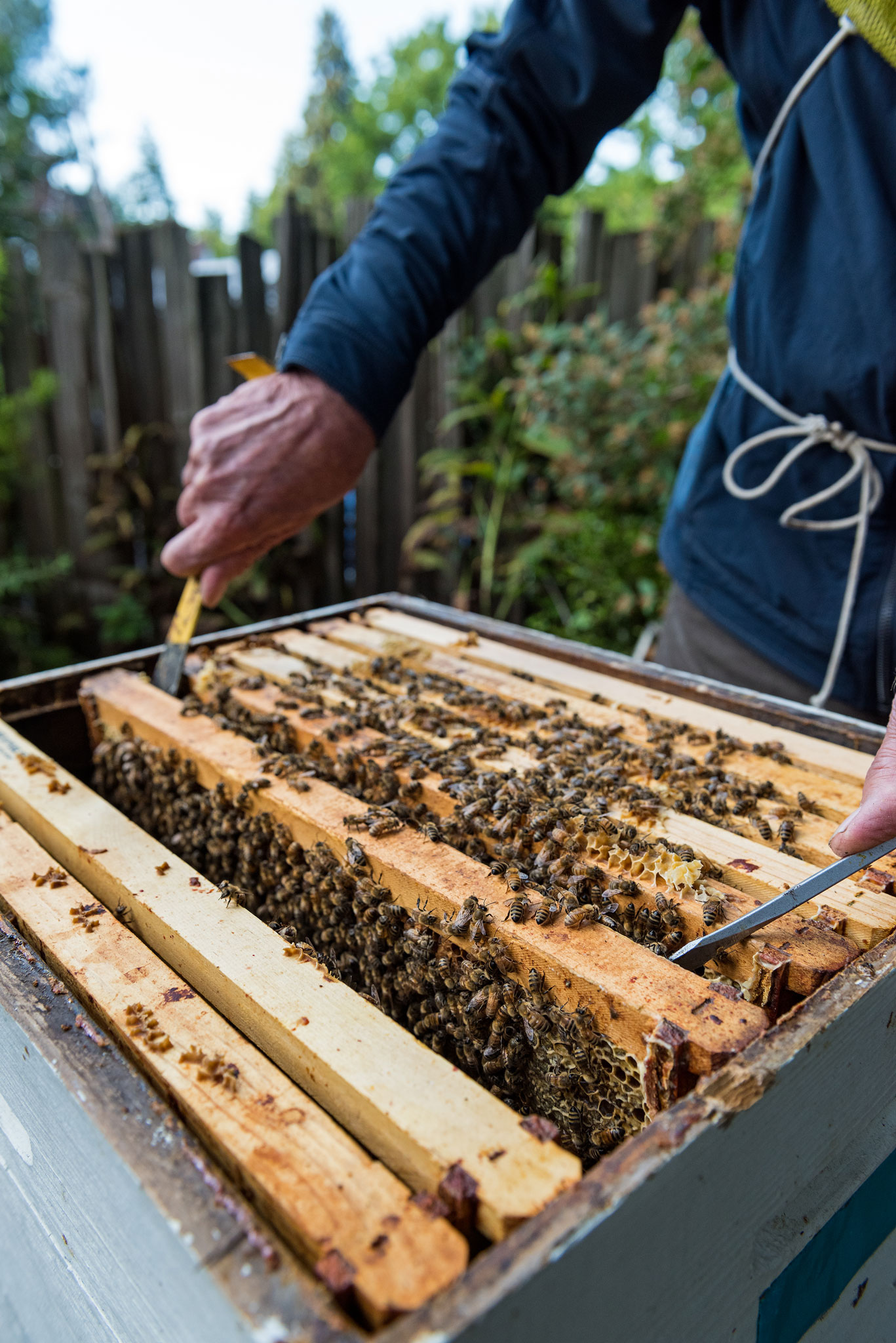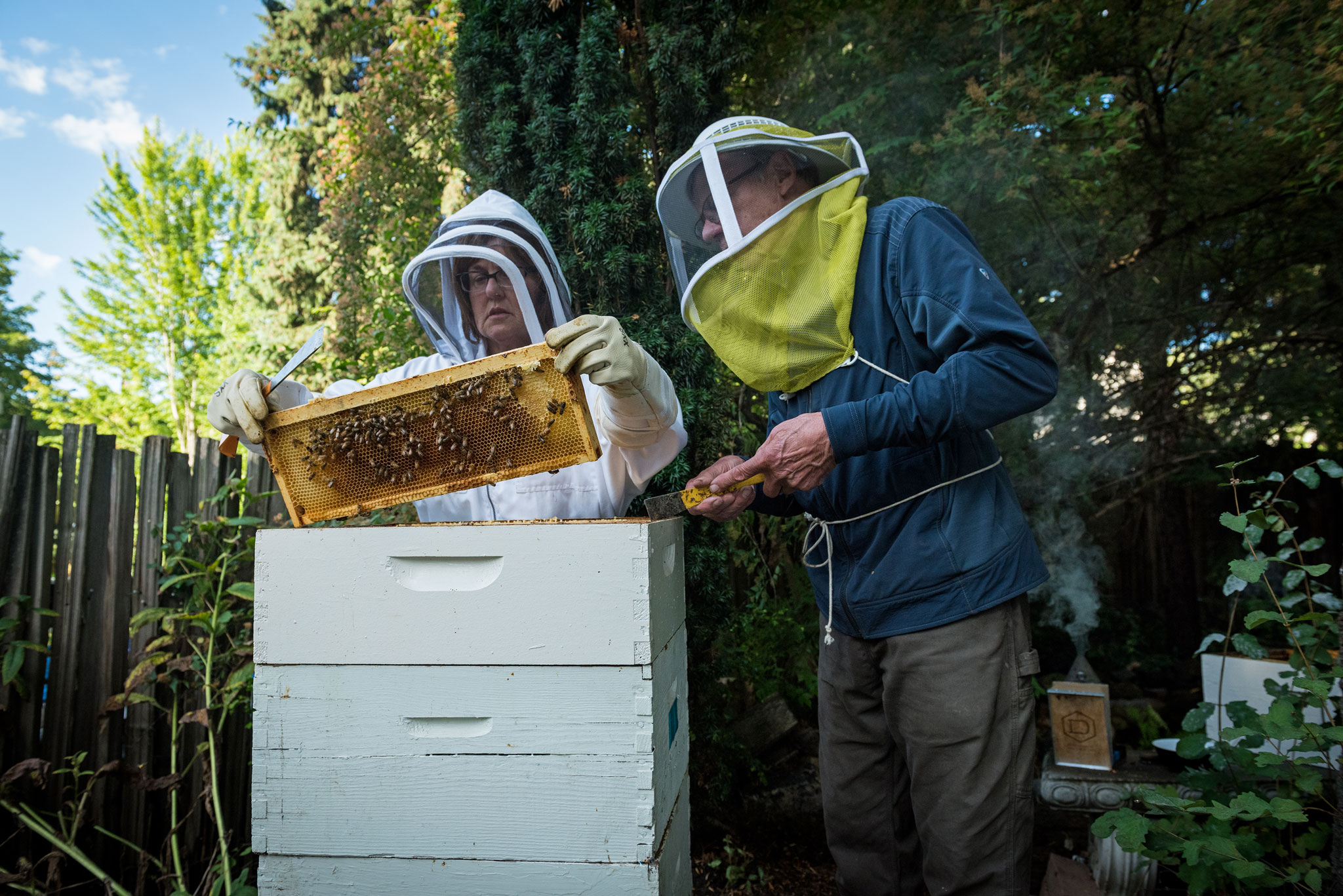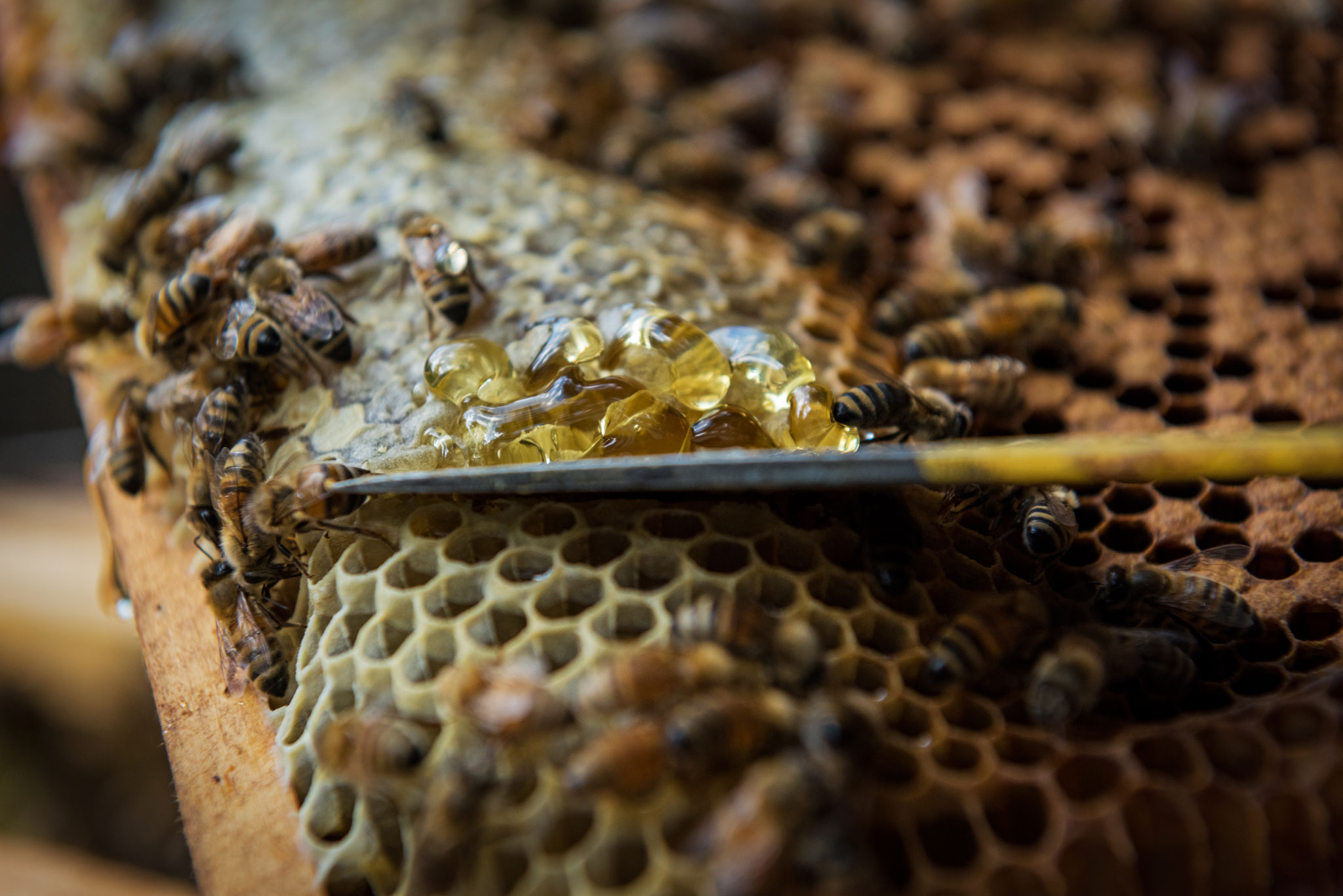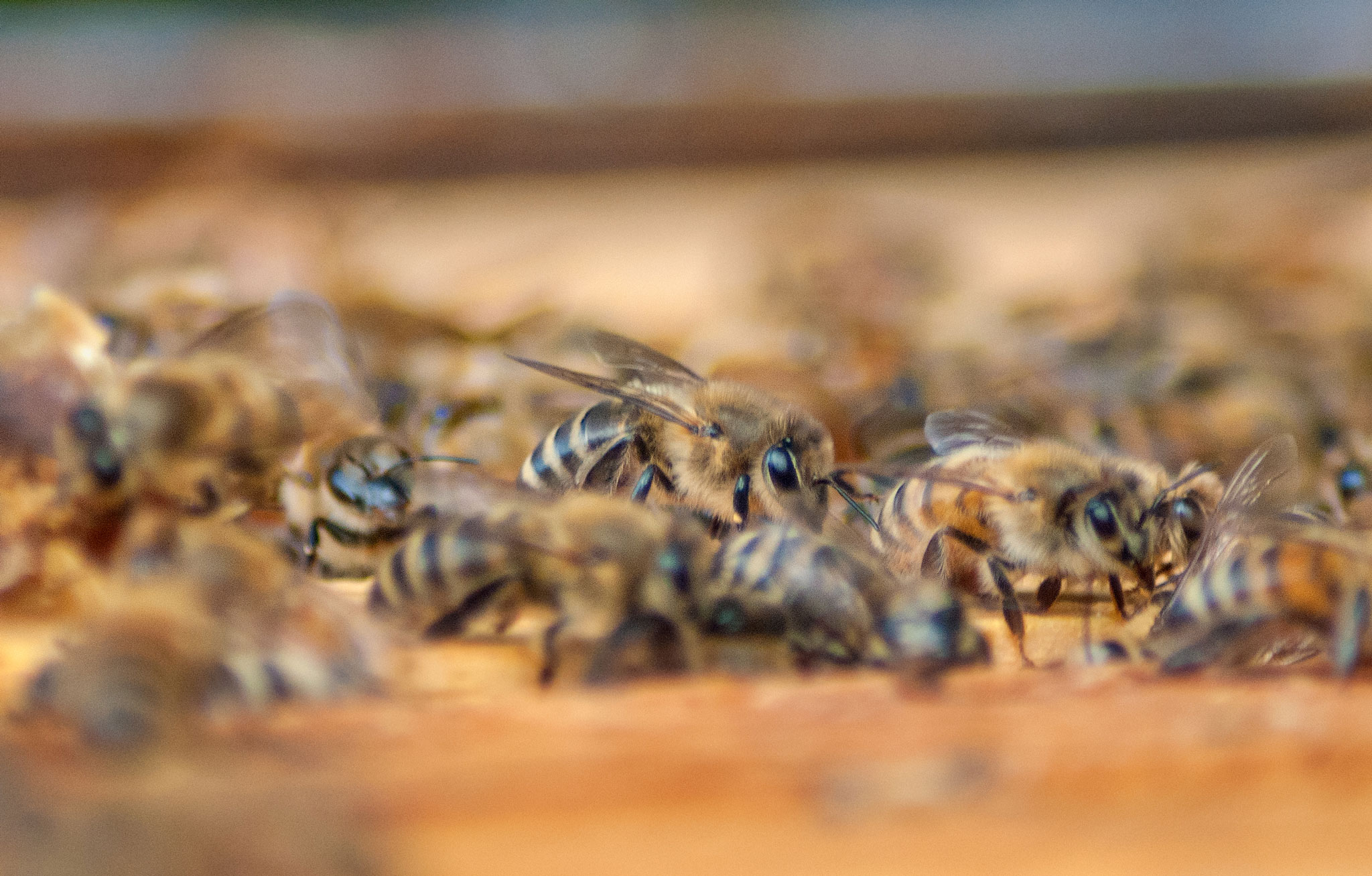
A hot cup of tea in his hands, he steps out the back door, leaving it open to let in the cool morning air. His little backyard orchard is in full bloom once again—a few fruit trees and a raised garden bed thriving with raspberry bushes, green with new growth. Near the raspberries sits a wooden box, buzzing with life. The hive has been a wonderful partnership. He had so much fruit the previous year, he had begged friends and neighbors to come pick for themselves. Sunlight glistens off the wings of bees amongst the blossoms like tiny, precious fairies. His little orchard has become a wonderland, he realizes. And he sips his tea, tasting the honey. It’s going to be another beautiful day.

People have long been curious about bees. However, only in the last century have we begun to realize how astute and resourceful bees are and how tightly interwoven our lives are with theirs. The tremendous increase in backyard beekeeping over the last decade has helped significantly to preserve not only the bees but also life as we know it.
Story continues after a quick message from our sponsor below.
Many folks who keep bees refer to their colony as their “girls.” This is because approximately 98 percent of bees are female. But it’s also due to the strong bond keepers feel with their buzzing buddies.They are fascinated at which flowers the bees are attracted to, how these choices affect the taste of the honey, and the little dances the damsels perform to communicate.
Another major draw to beekeeping is the apparent plight of bees worldwide. With the rise of pesticides and pollution and the decreased vegetation, bees have been suffering major collapses, leaving farmers distraught and delicate habitats out of balance. Thus, raising bees has become not only a pastime but also a valiant effort to protect our way of life.

It is estimated that 30 percent of global crops and 90 percent of wild vegetation rely on bees to reproduce and thrive.
This leaves the weight of the globe’s food sources on the wings of these influential insects.

In 2006, May 20 was officially named World Bee Day in honor of Anton Jansa, pioneer of modern beekeeping and the greatest bee expert of his day (1734-1773). In 2009, beekeepers also established National Honey Bee Day, which occurs the third Saturday in August. With a little research you can find local experts to help you get started keeping a hive of your own. And with an average hive costing between $100 and $500, you, too, have an opportunity to realize the thrills and sweet rewards of beekeeping. N
By Meegan Corcoran
Photography By Joel Riner
As Featured In: 2018 Summer/Fall SPO Edition




